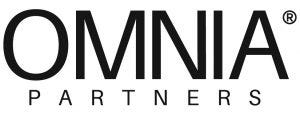
Omnia Partners
As they buy tech, cities want mobile systems that perform multiple tasks in all kinds of settingsAs they buy tech, cities want mobile systems that perform multiple tasks in all kinds of settings
February 27, 2024

As they buy new IT systems, local governments want portability and versatility, says Scott Thie, senior manager of government markets at Zebra Technologies, which offers a portfolio of rugged tablets and mobile computers for field services, the public sector and other industries. Zebra sells marking, tracking, and computer printing technologies. It offers systems that are used to sense, analyze and act in real time. The firm offers solutions for the public sector.
“Many areas in the city and county administration are looking for increased mobility in their devices, and solutions that have multiple use cases both in the field and in the station or department. We’re seeing major increases in identification scanning, asset tagging and scanning of key assets on first responder and essential worker vehicles, so they deploy with everything they need and come back with the same.” Thie notes that the public sector seeks solutions that aid in evidence-tracking and chain of custody. He sees a big demand for his company’s products in schools: “In education, we’re seeing a huge focus on student and visitor management in and out of schools, scanning students on and off the school bus.”
The Zebra executive says cities and counties face several hurdles when they buy technology. “Some manufacturers update their models in less than a year, and many of the consumer brands are this way. IT buyers in the public sector may prefer long-term product cycles. Futureproofing is always a challenge in the mobility space as buyers often deploy equipment for five to seven years.”
Thie adds that another important aspect in the tech-buying process is budgeting for service and repair of equipment. He says this area of budgeting “is often difficult, as service and repair expenses usually come out of a different budget—an operational budget. This means that as budget cuts occur across the board, durability and fewer repairs on procured equipment become very important.”
Thie says his firm works to foster innovation in its offerings. “Zebra’s solutions adhere to the highest security standards while providing manageability and longevity, freeing resources for public service and enabling convenient and precise control of end-user experiences.”
He urges local government tech purchasers to do their homework before acquiring new systems. “Jurisdictions want to ensure that their procurement officials and leadership are aware of the importance of market research. This means rigorous, upfront market research covering vendors, products and systems. This kind of market research solves many problems that crop up down the road. Through this process, new technology and vendors can be discovered. In addition, potential new approaches to procurement can be found.”
Officials in local government may want to consider updating their jurisdiction’s organizational structure and philosophy. “Government entities need to elevate the procurement function into a strategic function and not consider it a ‘back office’ activity,” Thie says. “Doing this empowers the buyers at all levels and supports the stewardship of taxpayer dollars in a meaningful way.”
Thie also urges government administrators to evaluate how it’s done in other communities. “One best practice would be to look at agency peers in other cities, counties or states to find new and innovative approaches to procurement. For example, new cooperative purchasing vehicles could be leveraged for better buying power.”
What players belong in the acquisition process for new systems? Thie says several factors will help make that determination. “The selected members of the tech-buying team are going to depend on the type of product or service being procured and the cost and/or complexity of the procurement. Generally speaking, besides the buyer, you will need a technical expert to help shape the requirements.” Thie adds that other team players for the potential purchase could include legal counsel, pricing experts and potentially small business advocates.
The agency’s goal, says Thie, should be to ensure that the right product or service is being bought at the right price and contracted with a responsible vendor. He believes that staff training should always be a top priority for any planned agency systems acquisition. “I would also add that if a local procurement team isn’t elevated to a strategic level or is not supported correctly, then workforce retention could be another major concern.”
Thie’s firm offers products and services to all levels of government. “Zebra’s public sector solutions empower front-line personnel by enhancing communications, streamlining workflows and providing situational awareness to improve critical decision-making. In addition, we offer a full suite of services for both pre- and post-deployment.” Some of the company’s offerings include:
Project scope and assessment
• RFP scripting support
• Image development
• Asset tagging and kitting
• Distribution.
Michael Keating is senior editor for American City & County. Contact him at [email protected].
.jpg?width=100&auto=webp&quality=80&disable=upscale)
.jpg?width=400&auto=webp&quality=80&disable=upscale)







